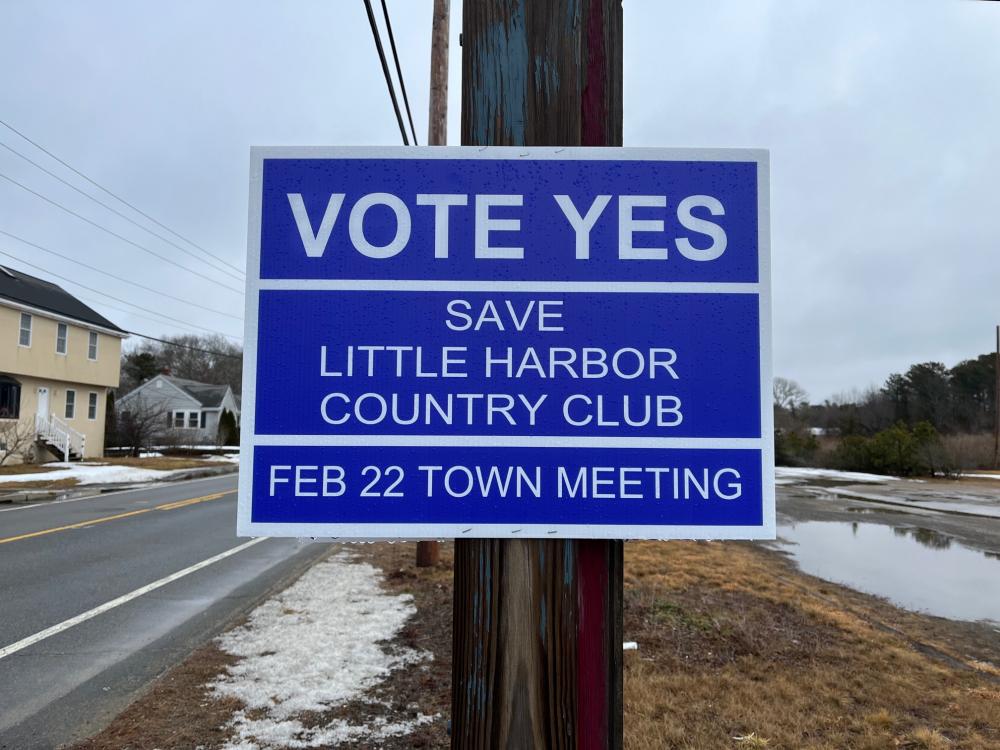Select Board endorses Little Harbor purchase, use of Community Preservation funds
The Select Board voted at its Feb. 8 meeting to recommend voters at Town Meeting approve the purchase of the Little Harbor Country Club. The board also voted to recommend the passage of the article that would use $2 million in Community Preservation funds for the purchase, although member Peter Teitelbaum voted against it.
If the town uses Community Preservation funds to purchase the golf course, $1 million would come from funds the town already has — collected using a 3 percent surcharge on property taxes and supplemented by the state. Those funds can only be used for certain purposes: open space and outdoor recreation, affordable housing and historic preservation. The remaining $1 million would be bonded and paid back over time using Community Preservation funds.
The use of Community Preservation funds would not change the tax rate.
If those funds are used then, the town is required by state law to put a conservation restriction on the property, which must be held by another organization. The town has been in talks with the Wareham Land Trust about holding that restriction, which would protect the land from development in perpetuity.
If Town Meeting votes to purchase Little Harbor but does not vote to use Community Preservation funds, then the town will need to find another way to fund the purchase. Teitelbaum suggested keeping the majority of the property as-is, and carving off a small section to use to build houses or condos on as a way to financially support the purchase. He noted that the housing at the Bay Pointe Club has been successful, and said he was wary of mixing conservation and for-profit endeavors.
If the town purchases the land and course, it will issue a request for proposals for a management company to run the course. The typical contract for such a company is structured so that the management company is the one taking on financial risk, board member Judith Whiteside has explained. The company would have a set yearly fee. The course’s profits — or losses — up to that point would be the company’s. Revenue beyond that set fee would be split between the company and the town at a to-be-agreed-upon ratio, Whiteside said.
The town itself would not be managing the course — it would only be responsible for capital costs, like golf cart replacements or improvements to the clubhouse, officials have said. Those capital costs would be funded by the course’s profits, which would be put in an enterprise fund dedicated to the purpose.
The town has compiled two FAQ documents about the proposal, one short (https://tinyurl.com/Save-LHCC-2) and one longer (https://tinyurl.com/Save-LHCC).















